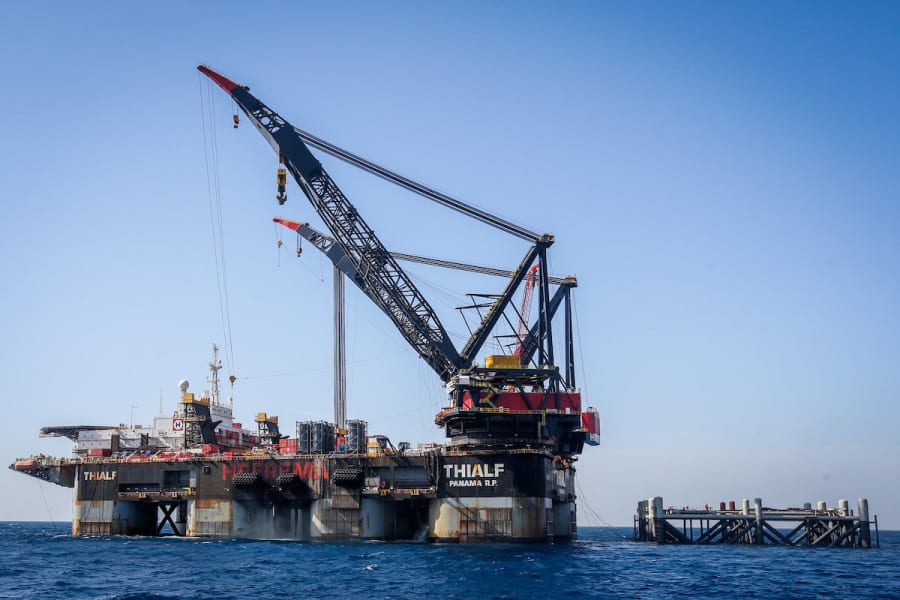Report: Israel to indirectly supply natural gas to crisis-hit Lebanon
The United States approved a deal that will deliver natural gas from Israel to Lebanon through Jordan and Syria, according to Israeli media report

In a secret agreement that was signed over the weekend, Israel will indirectly transfer much needed natural gas to Lebanon, according to an Israeli media report later denied by Lebanon.
The gas from Israel’s offshore Leviathan and Tamar fields will be piped through Jordan, then to Syria – in an unprecedented exception to the sanctions that the U.S. has imposed on Basher Assad’s regime. From Syria, the gas will flow to Lebanon, which officially views Israel as an enemy state, as does Syria. Though still considered a pariah state by the U.S., Syria has recently been approached by other Arab nations in the region in an effort to restore Assad back into the fold.
Jordan has diplomatic relations with Israel and hence would serve as the conduit for transferring the Israeli gas.
To underscore Lebanon's present fuel crisis, internet services were temporarily disrupted today due to diesel shortages, according to the state provider.
It may take years, however, to implement the supply deal. According to Israel’s Channel 12 news, a gas line that flows from Syria to Lebanon must first be repaired and extended.
The report said that the deal was brokered by the United States and coordinated with Russian President Vladimir Putin. The deal partially seeks to reduce Lebanon’s energy dependence on Iran and reduce Iranian influence in the region.
Hezbollah, the radical Shiite group that operates both as a political party and a military wing, has been receiving oil shipments from Iran to help ease the crisis. Iraq has also vowed to send gas oil to the crisis-stricken country.
Thus, Lebanon’s access to energy does not seem to be its main problem, but rather how to pay for it.
Lebanon is experiencing an economic crisis, a severe fuel shortage, recurring power cuts and devastating inflation. The Lebanese currency has lost more than 90% of its value over the last two years, in what has eroded the country’s once middle class. The World Bank has described it as one of the worst financial crises since the mid-19th century.
In any case, Lebanon’s Energy Ministry denied the report that it would get gas from Israel.
“The Ministry of Energy and Water confirms that the gas supply agreement that is being worked on between the Lebanese government and the sisterly Egyptian government clearly and explicitly stipulates that the gas should come from Egypt, which owns large quantities of it, and consumes within the same country more than a hundred times what it will provide to Lebanon,” the ministry said in a statement cited by Lebanese media. “What is being circulated about the fact that the gas will be Israeli gas is totally and completely untrue.”
Since 2020, Israel and Lebanon have been negotiating over their disputed maritime borders through the United States as a mediator, thanks to “relentless diplomatic efforts that lasted about three years,” former U.S. Secretary of State Mike Pompeo said in a statement at the time.
In October, U.S. Senior Advisor for Global Energy Security Amos Hochstein was planning to “discuss sustainable solutions to Lebanon’s energy crisis,” which included indirect negotiations between Beirut and Tel Aviv, in addition to the maritime border.

Tal Heinrich is a senior correspondent for both ALL ISRAEL NEWS and ALL ARAB NEWS. She is currently based in New York City. Tal also provides reports and analysis for Israeli Hebrew media Channel 14 News.













